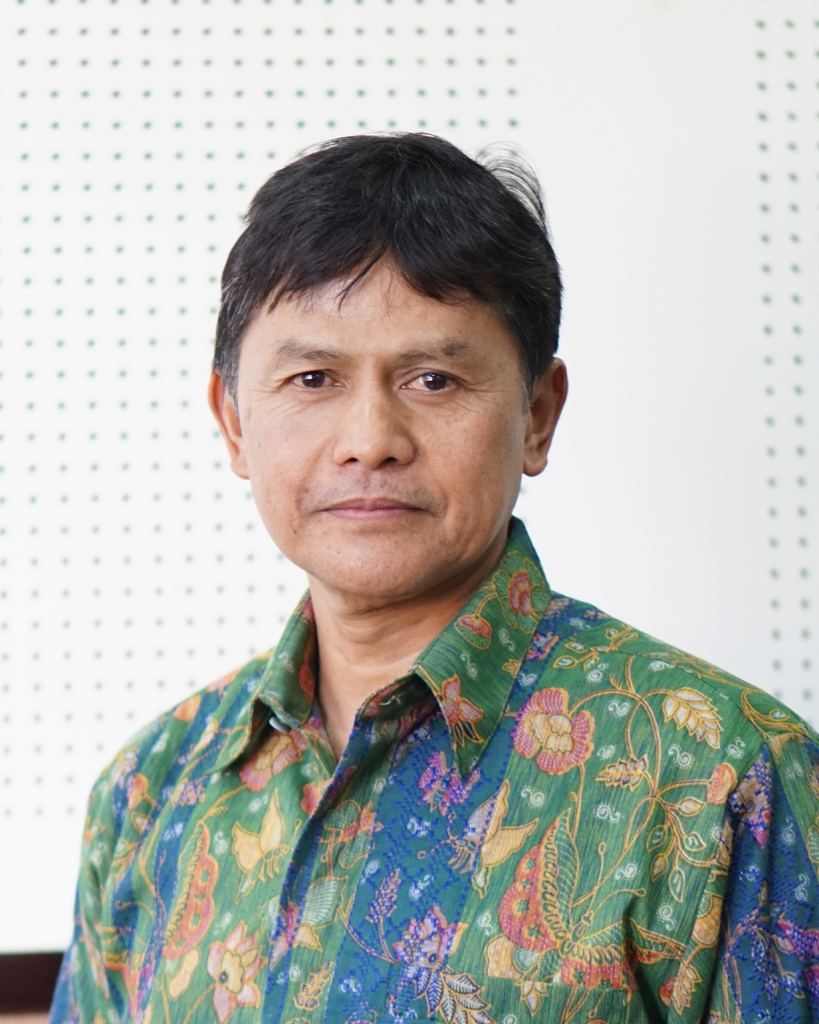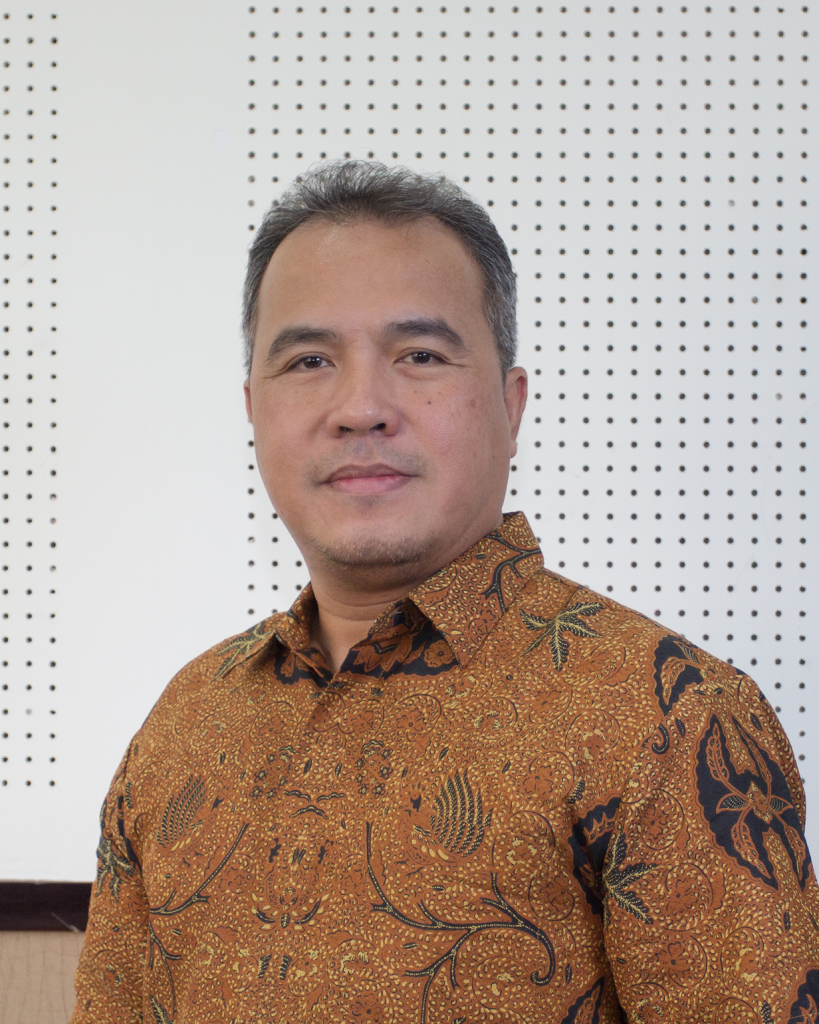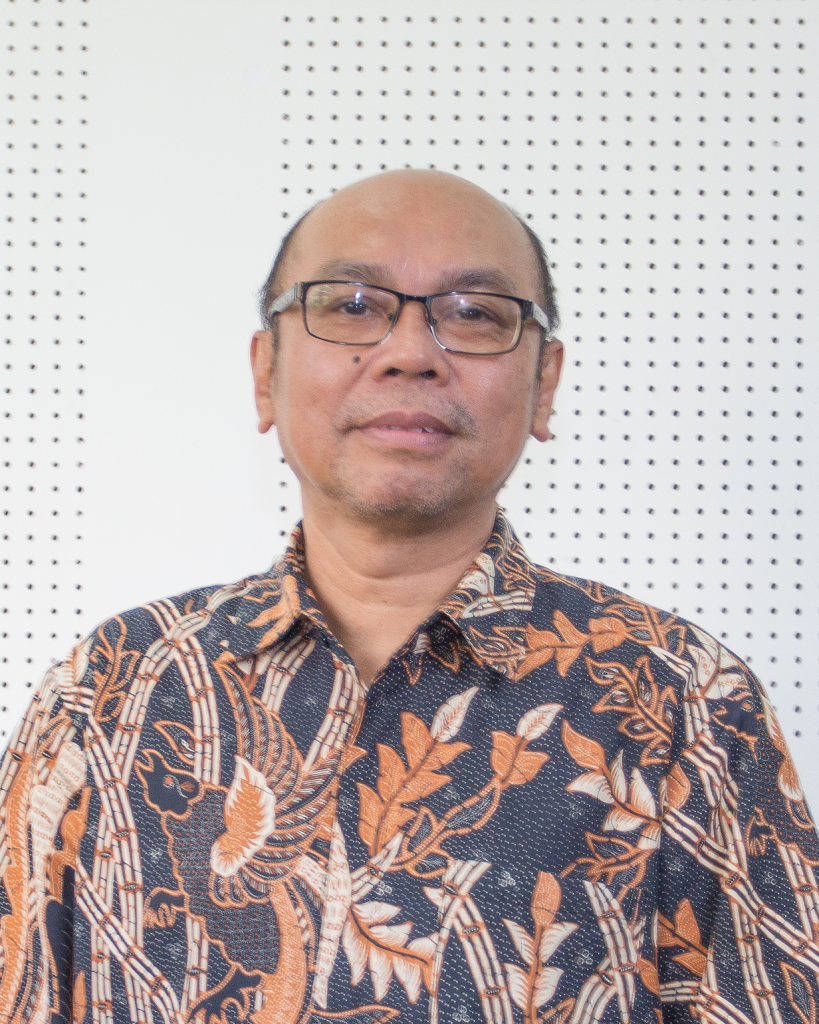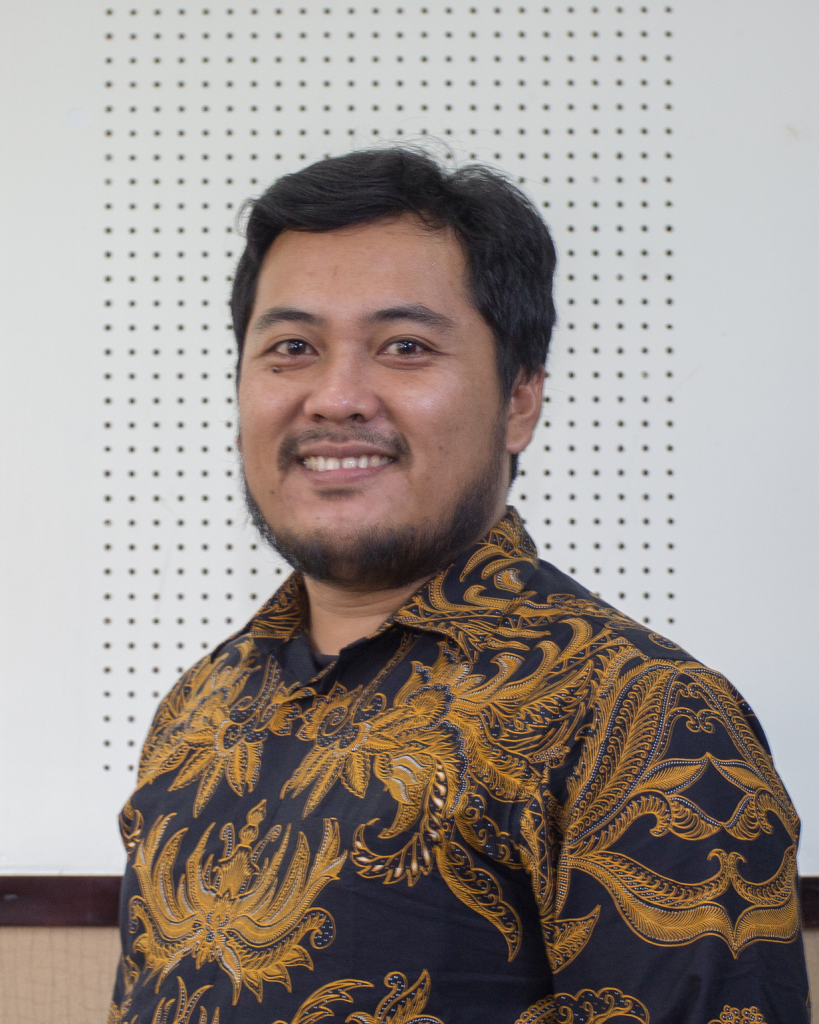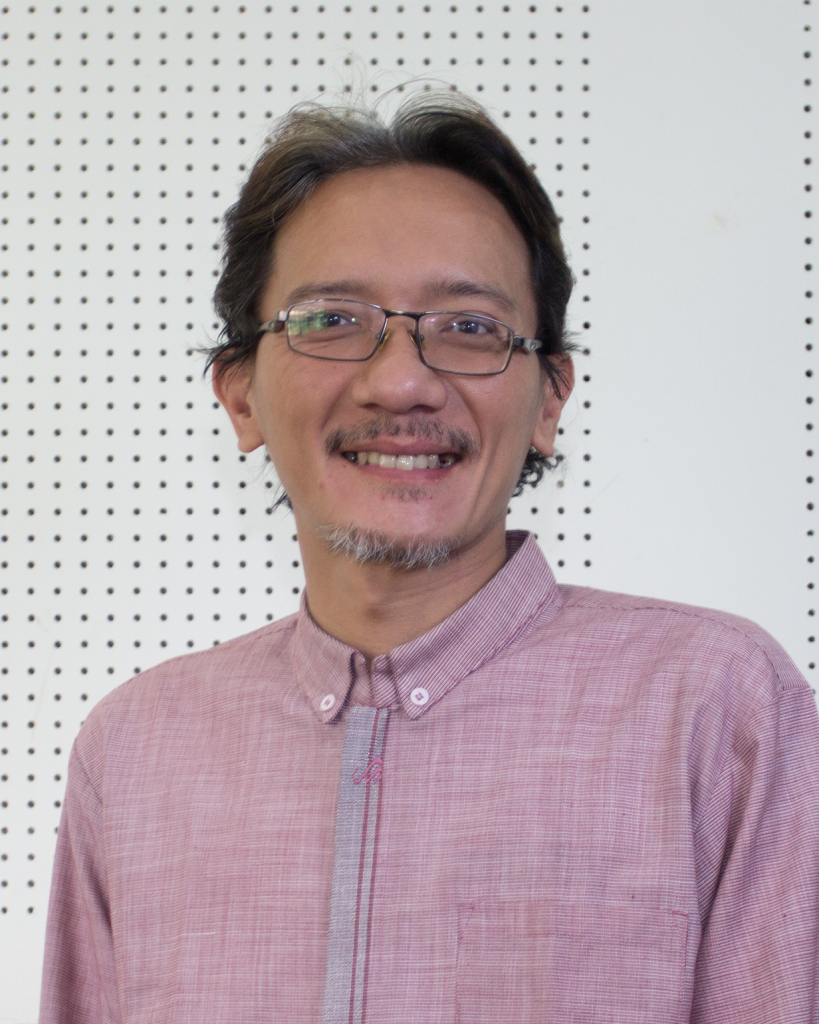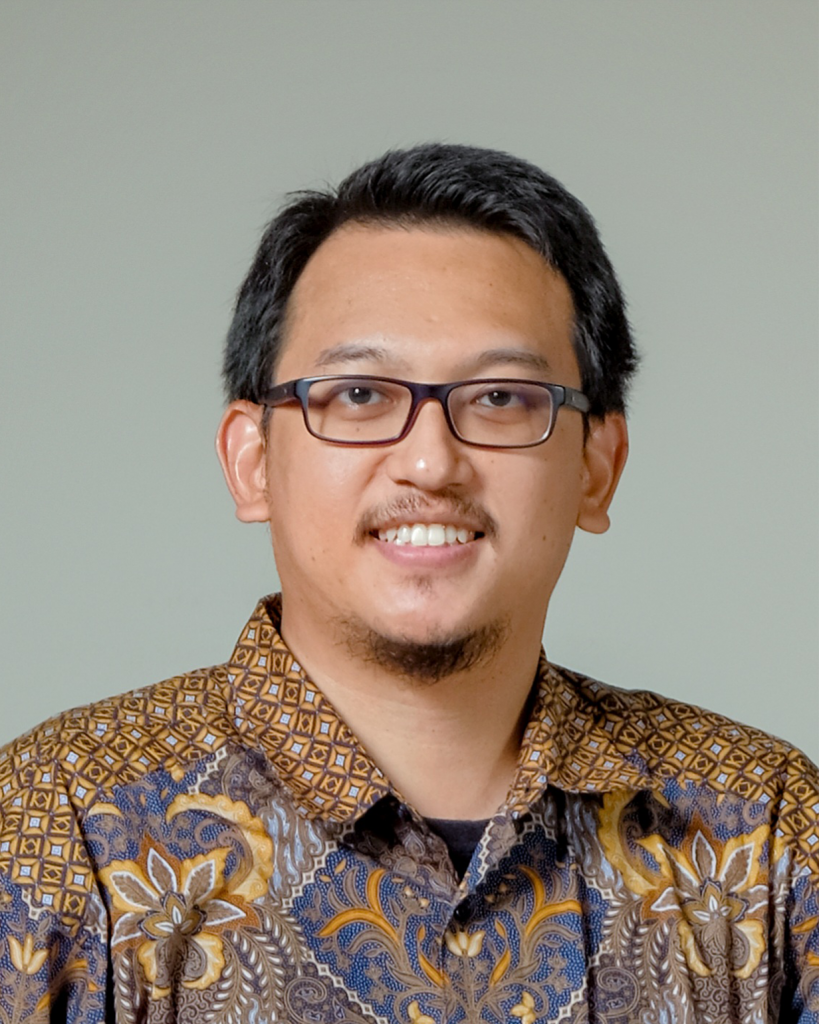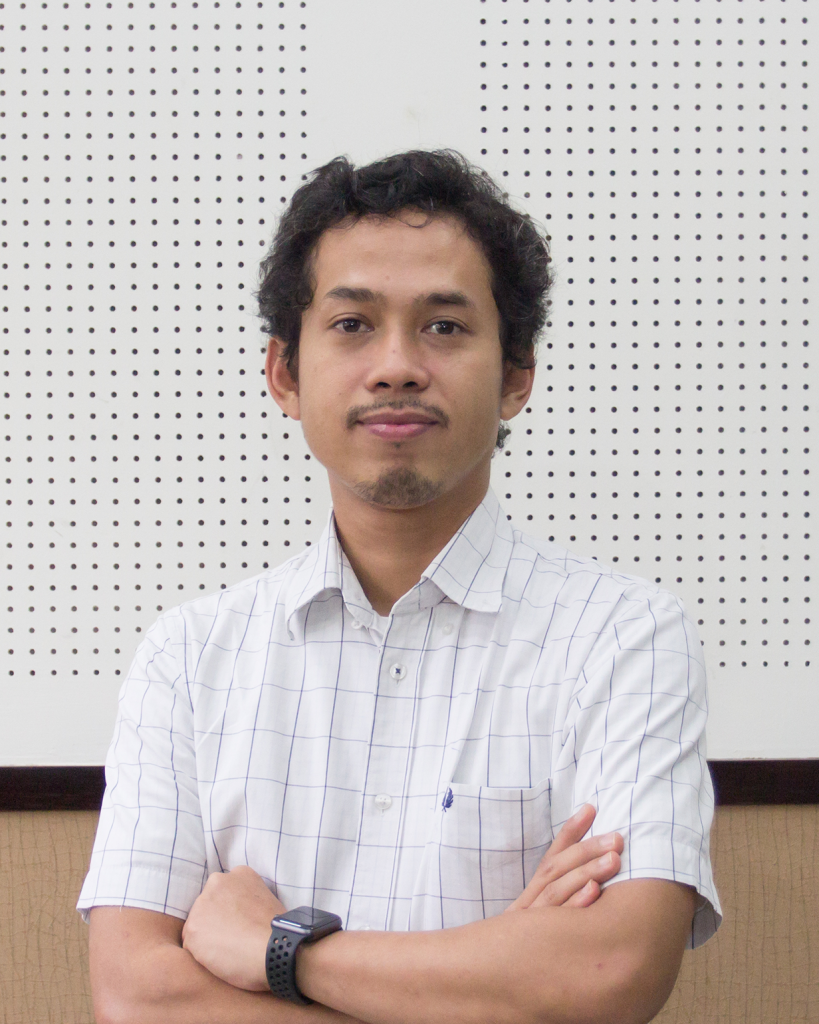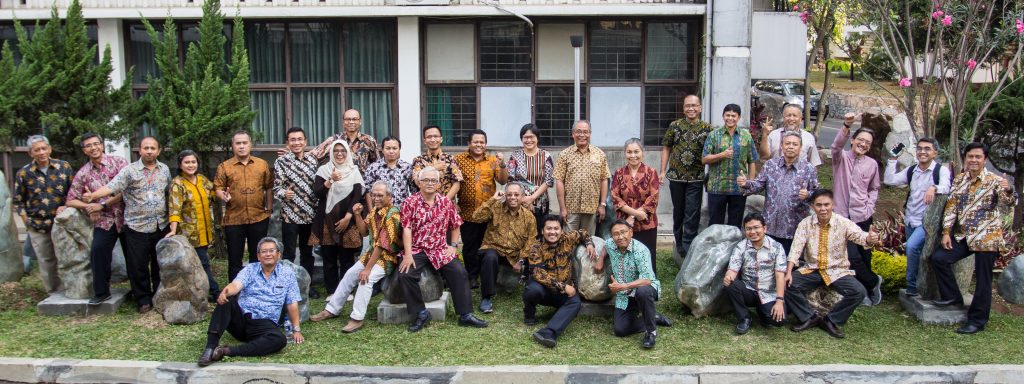
Research Group
Paleontology and Quaternary Geology
The Expertise Group (Kelompok Keahlian/Keilmuan – KK) in Paleontology and Quaternary Geology (Paleontologi dan Geologi Kuarter – PGK) is a specialization that encompasses the field of paleontology, the study of ancient life and everything related to it, both macro-paleontology (macrofossils) and micro-paleontology (microfossils). The studied fossils include vertebrate animal fossils, human fossils, invertebrate fossils, trace fossils, remnants of plants, as well as micro-sized fossils such as foraminifera, nannoplankton, pollen, spores, radiolarians, ostracods, dinoflagellates, etc.
Research activities are focused on the Quaternary-aged rock layers (since 2.6 million years ago) because this era records important stages in human evolution and culture (due to the discovery of vertebrate animal fossils, humans), and it is an era where various important natural events, climatic dynamics, environmental conditions, and geography can be observed and studied well through evidence from macro and microfossils. This is closely related to the interpretation of ancient climates, the environment of micro and macrofossils, and ancient humans, paleoclimate, geoarchaeology, paleoenvironment, stratigraphy and relative dating, paleogeography, as well as various studies related to carbonate rocks.
Scientific Development/Highlights of the Expertise Group
Vertebrate Paleontology, Human, Invertebrate, Trace Fossils/Ichnofossils, Foraminifera, Nanoplankton, Palynology, Biostratigraphy, Paleoenvironment Reconstruction, Paleoecology, Paleoclimatology, Paleogeography, Geoarchaeology, Paleoanthropology, Economic Geology Exploration, Sedimentology, Quaternary Geology and Geochronology, Paleogeobiomineralogy, Studies of Tsunami Deposits & Paleotsunami, Conservation & Preservation of Fossils in Indonesia.
Member
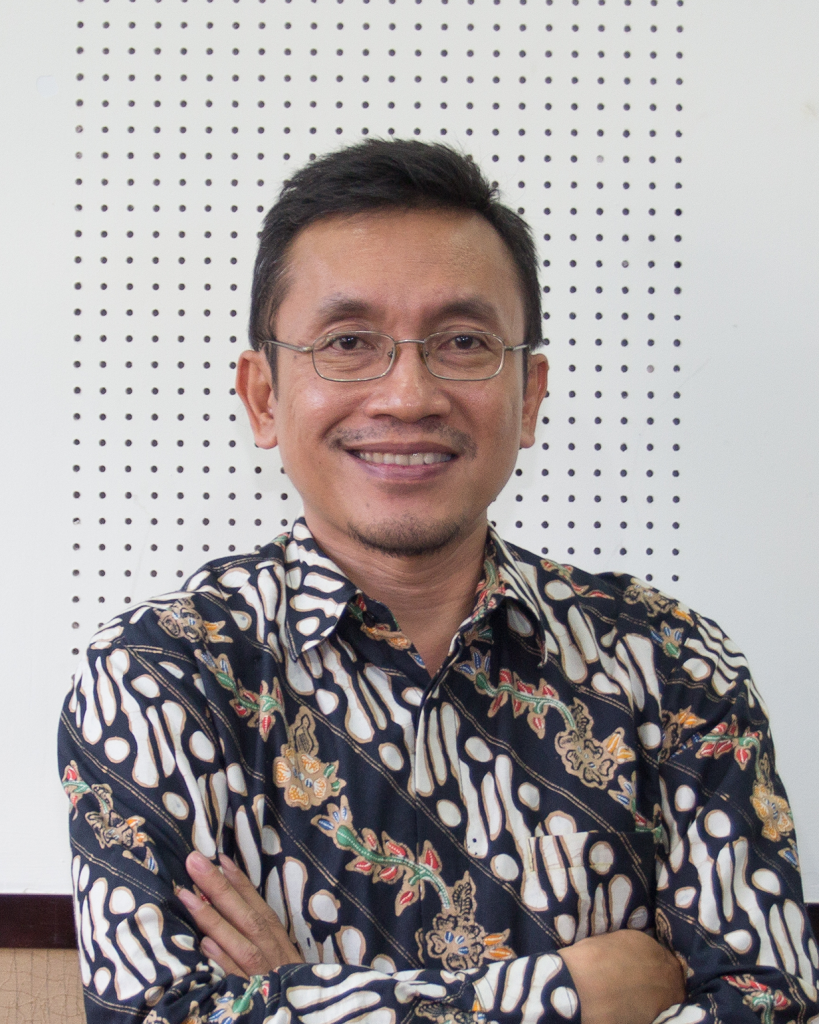
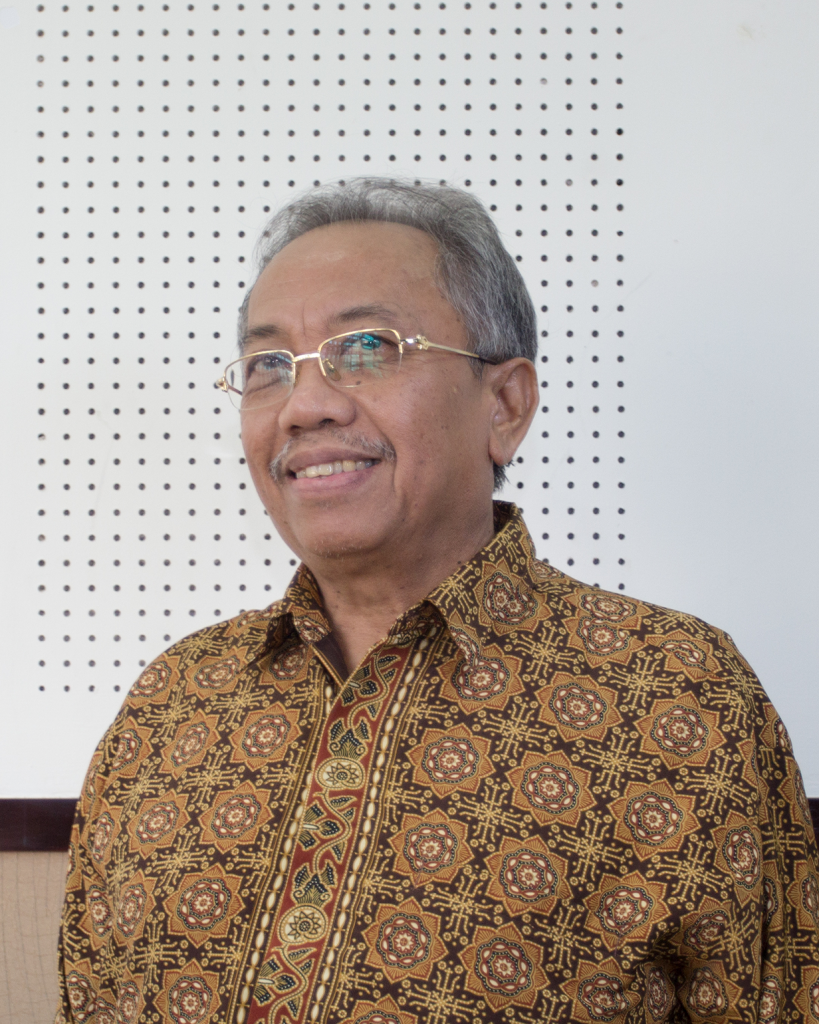
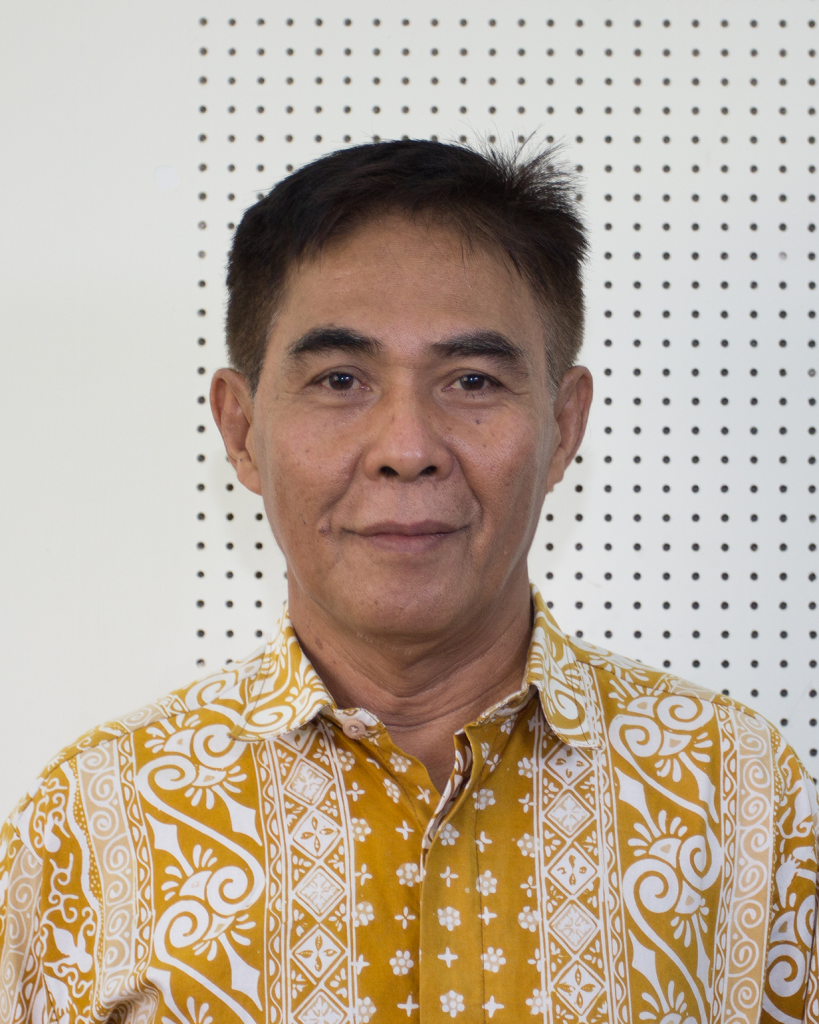
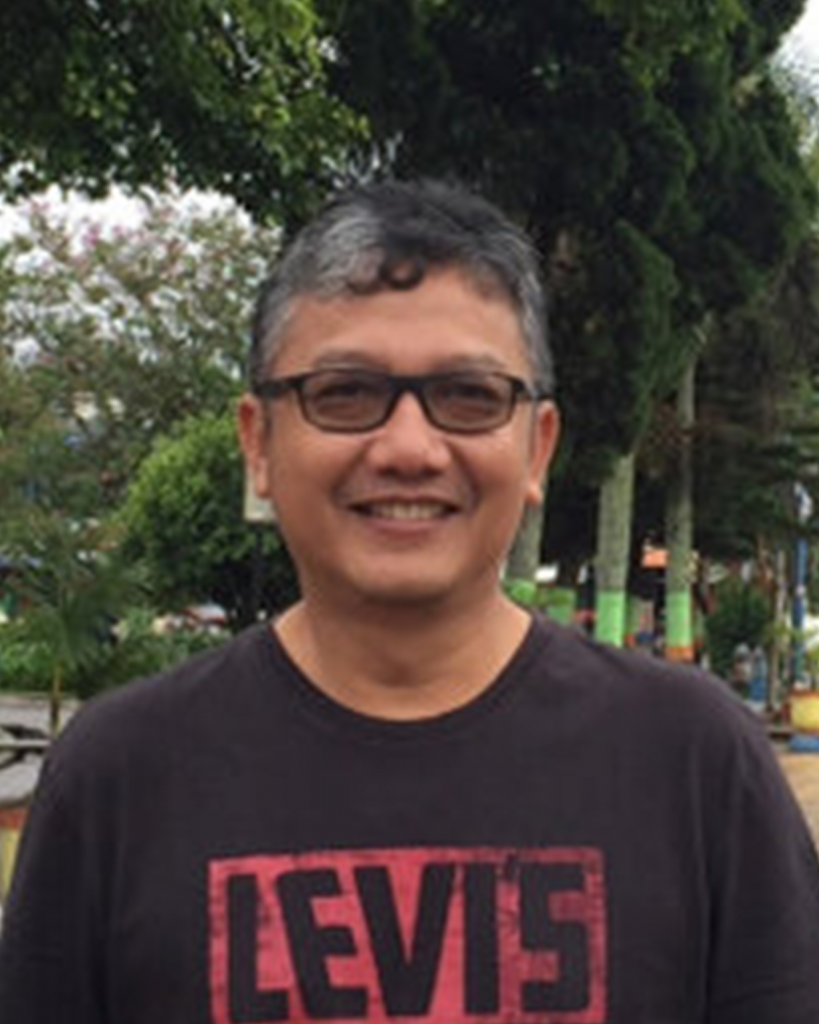
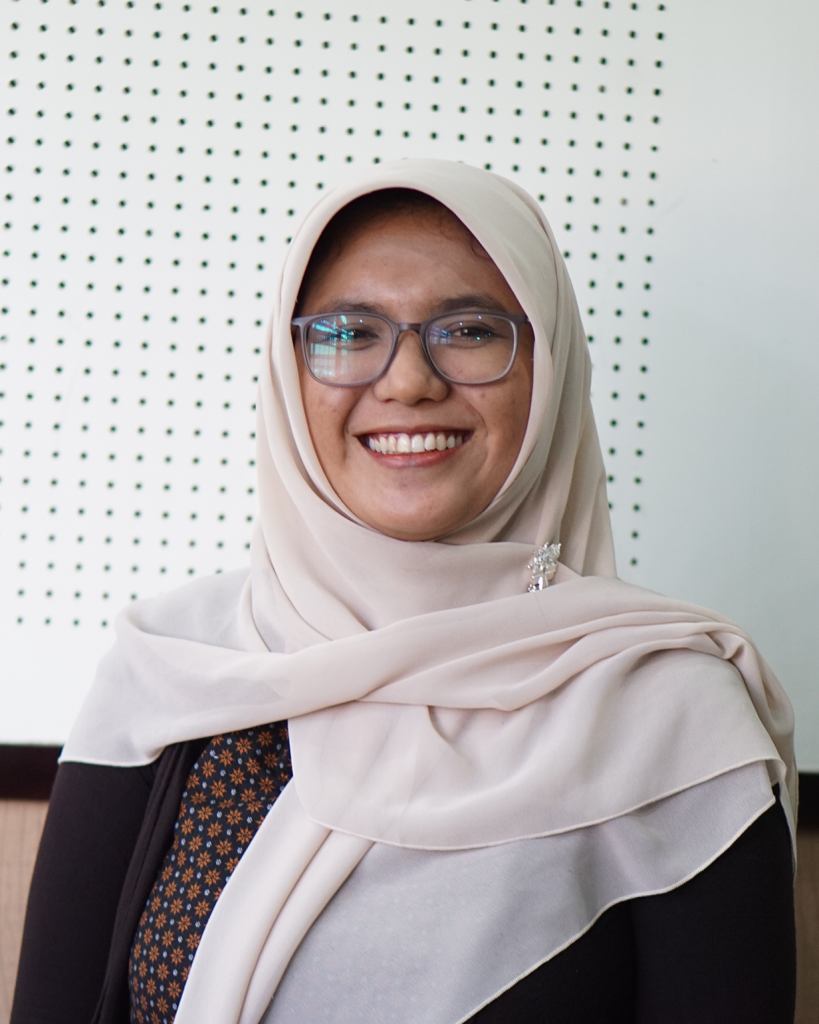
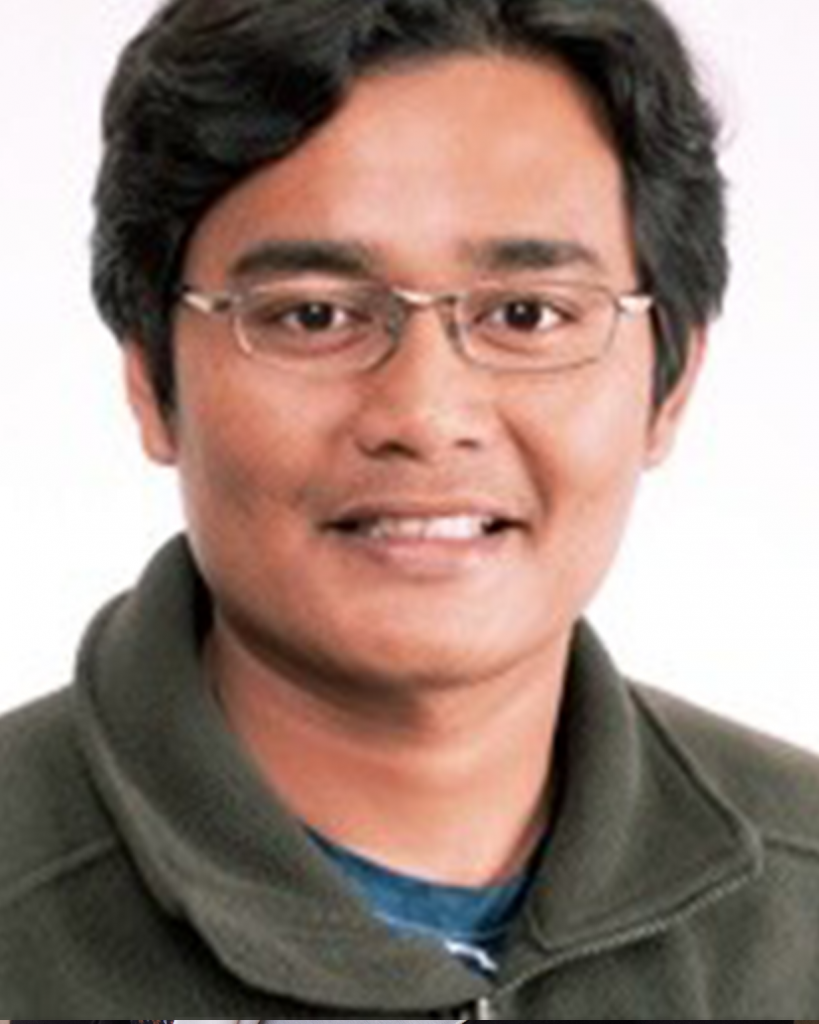

Applied Geology
The Applied Geology Scientific Group is a scientific group rooted in the fundamental principles of geology, geophysics, geochemistry, geomaterials, geofluids, geomechanics, and the physical environment (abiotic). This scientific group adheres to the basic principles of geology as its primary foundation for investigating and applying geological science in various practical contexts. Focusing on applied geology, the group actively engages in research and exploration of mineral resources, integrating geological principles with aspects of geophysics, geochemistry, and geomechanics to identify and manage the potential of mineral deposits. Additionally, the group investigates aspects of the physical environment, highlighting the abiotic impacts on ecosystems and understanding the interconnection between human activities and the geological environment. Thus, this scientific group not only contributes to the fundamental understanding of applied geology but also provides practical solutions to real-world challenges.
The emphasis on applied geological aspects also includes an in-depth understanding of geofluids and geomaterials. By detailing the properties of geofluids and the characteristics of geomaterials, this group can offer valuable insights to support the management of natural resources and infrastructure. By integrating geological, geophysical, and geochemical sciences, the group creates a holistic approach to addressing challenges in various fields, including soil engineering, geological risk mitigation, and natural resource sustainability. Therefore, the Applied Geology Scientific Group makes a significant contribution in translating geological principles into concrete solutions applicable in various practical contexts.
Scientific Development/Highlights of the Expertise Group
- Governance Theme: Integrated groundwater resource governance. Environmental geology and land-use planning. Utilization of SMCE (Spatial Multi-Criteria Evaluation) in spatial zoning. Geomorphology and active fault geomorphology. Geotourism and geoparks for the protection of significant geological features, enhancing earth science education, and serving as a foundation for sustainable environmental management. Geoarchaeology to aid in predicting future environmental changes.
- Natural Resource Exploration Theme: Geothermal and geothermal exploration. Sustainable groundwater exploration. Identification of overpressure phenomena in hydrocarbon exploration.
- Modeling Theme: Modeling and simulation for geofluids (including hydrogeology, geothermal, and oil and gas). Modeling and simulation for engineering geology. Engineering geological modeling for underground construction. Use of Spatial and Temporal-based Multi-Criteria Decision Making Methods (MCDM) (AHP, WoE, Fuzzy) in decision-making evaluations.
- Forensic Geology Theme: Geomechanics. Forensic hydrogeology for urban areas, volcanoes, and karst regions. Forensic engineering geology. Identification of potential geothermal fluid contamination in the environment.
Member
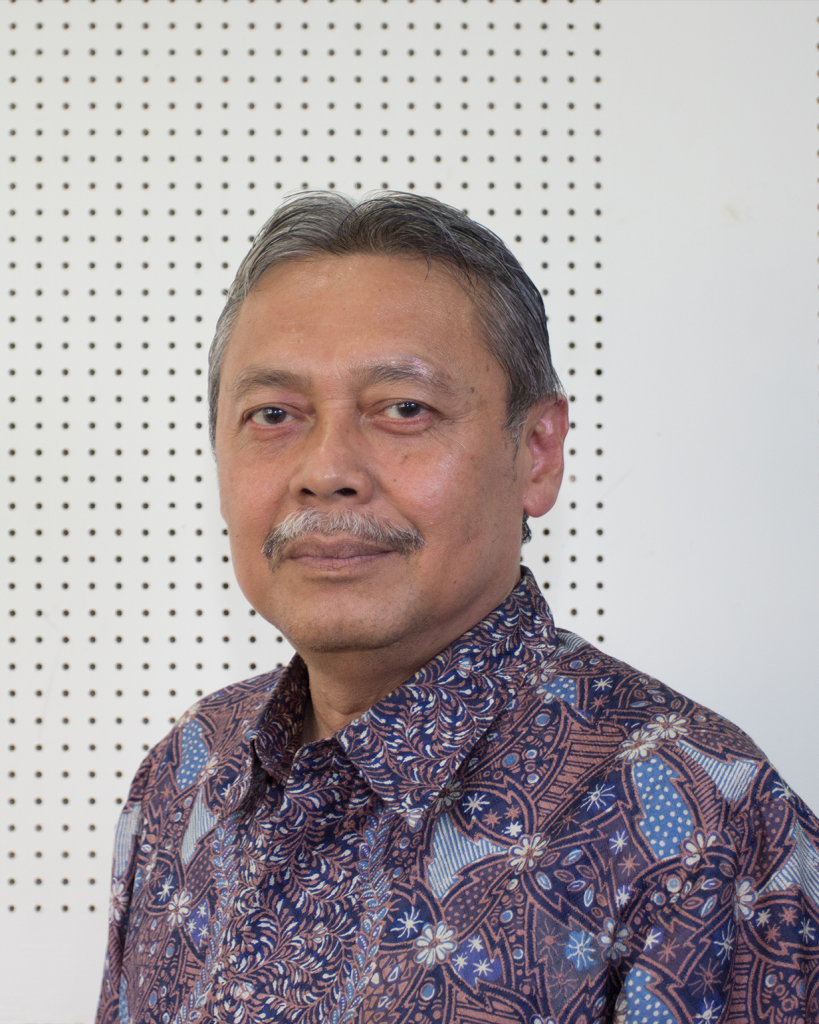
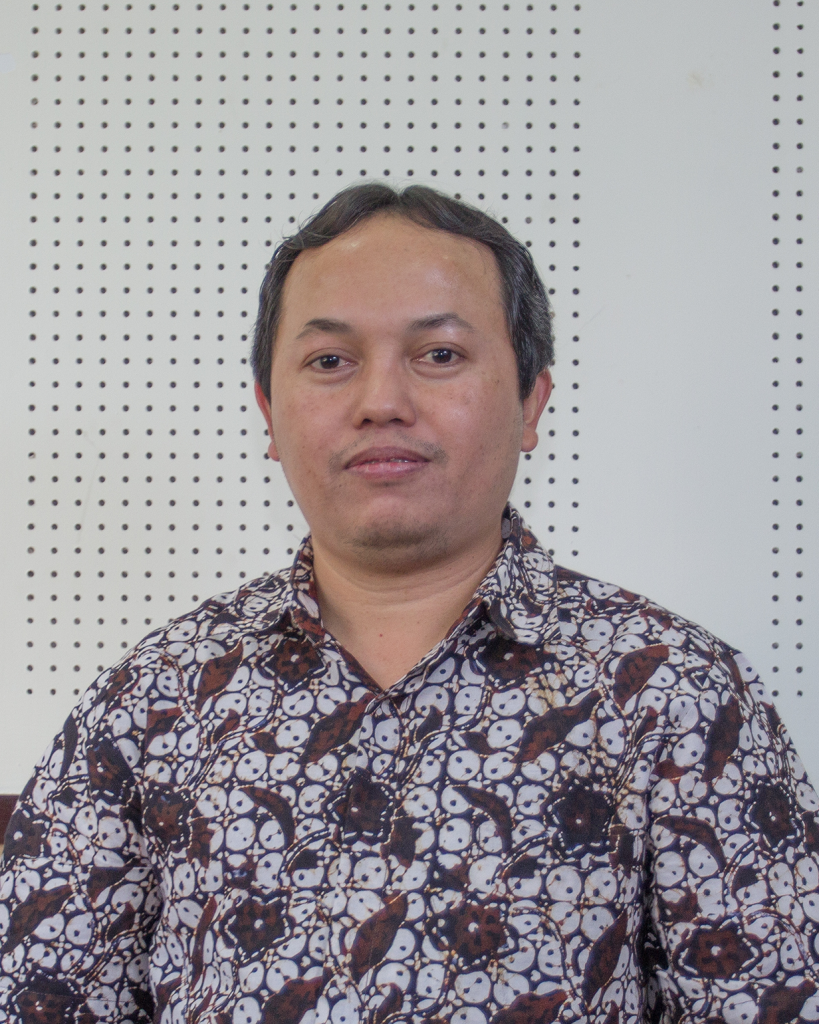
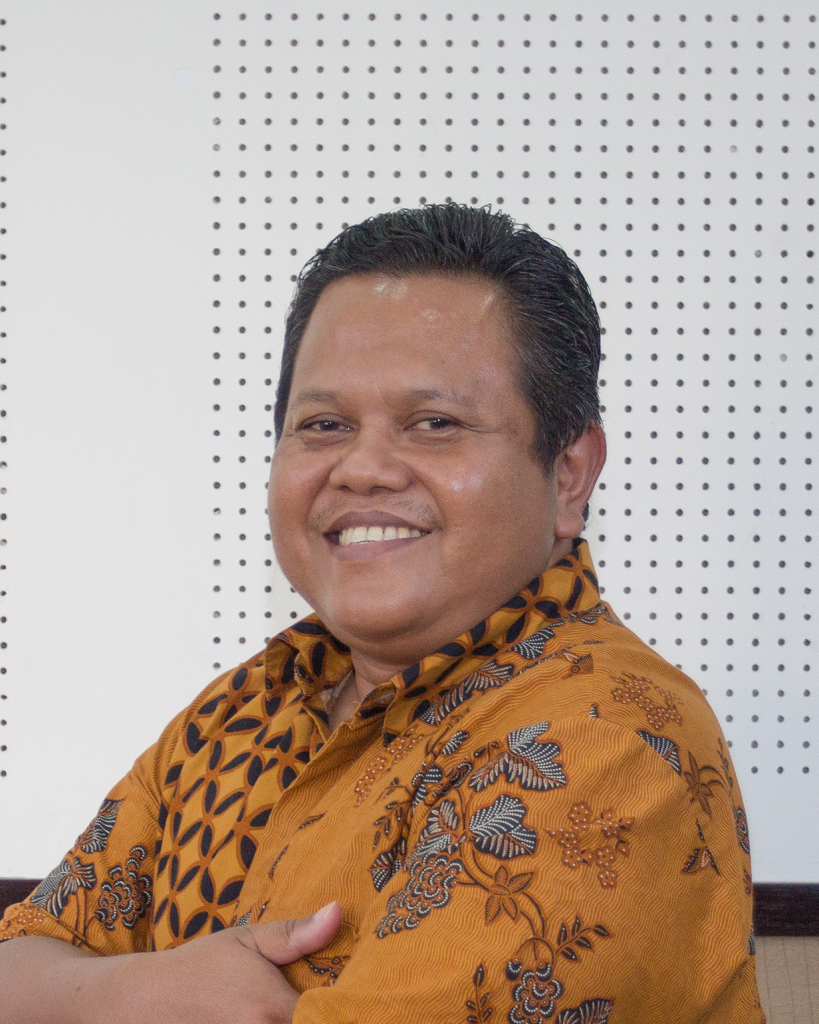

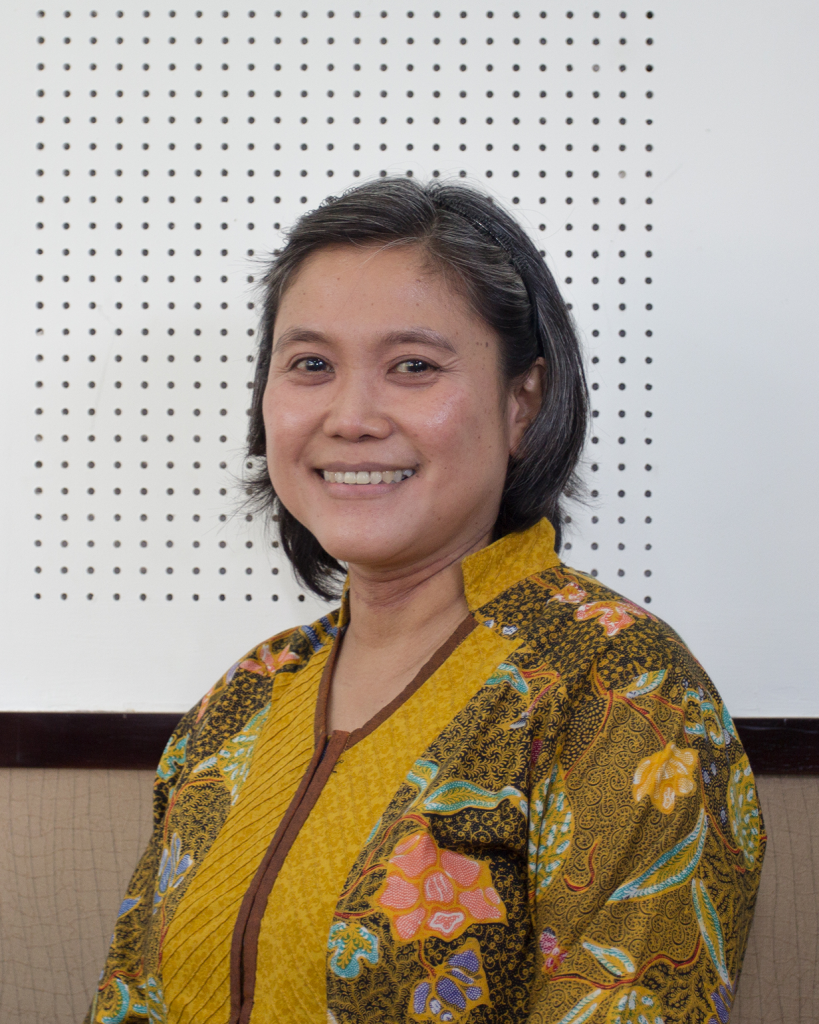
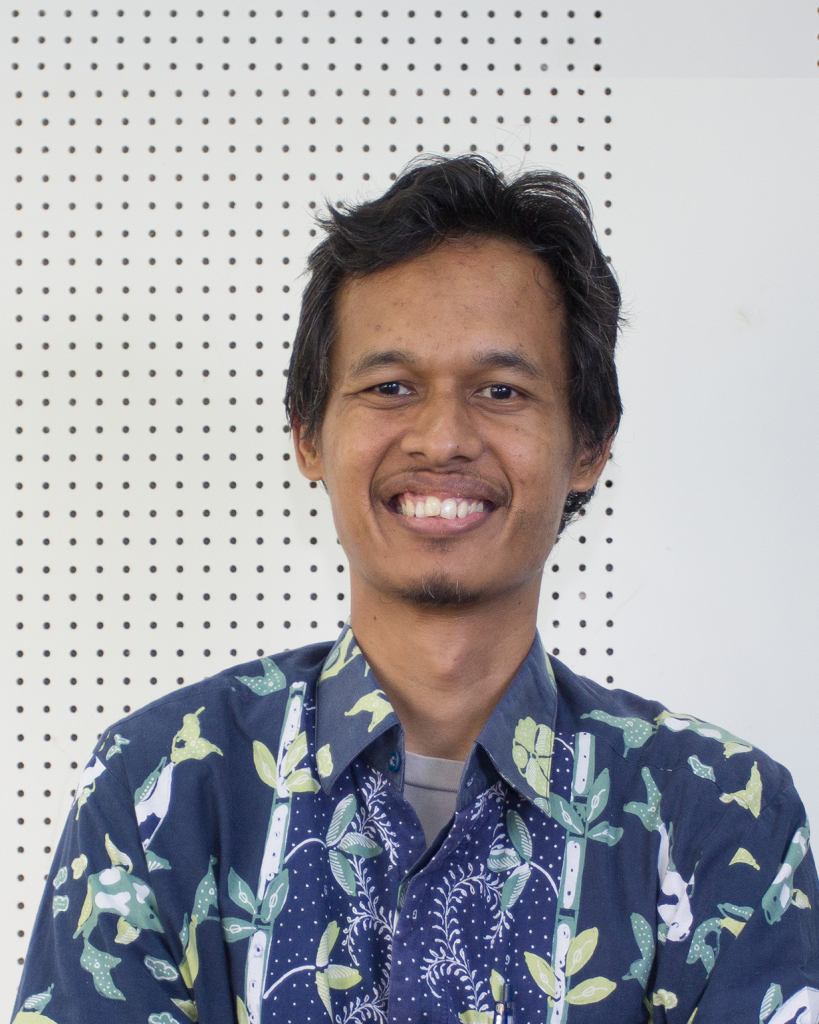
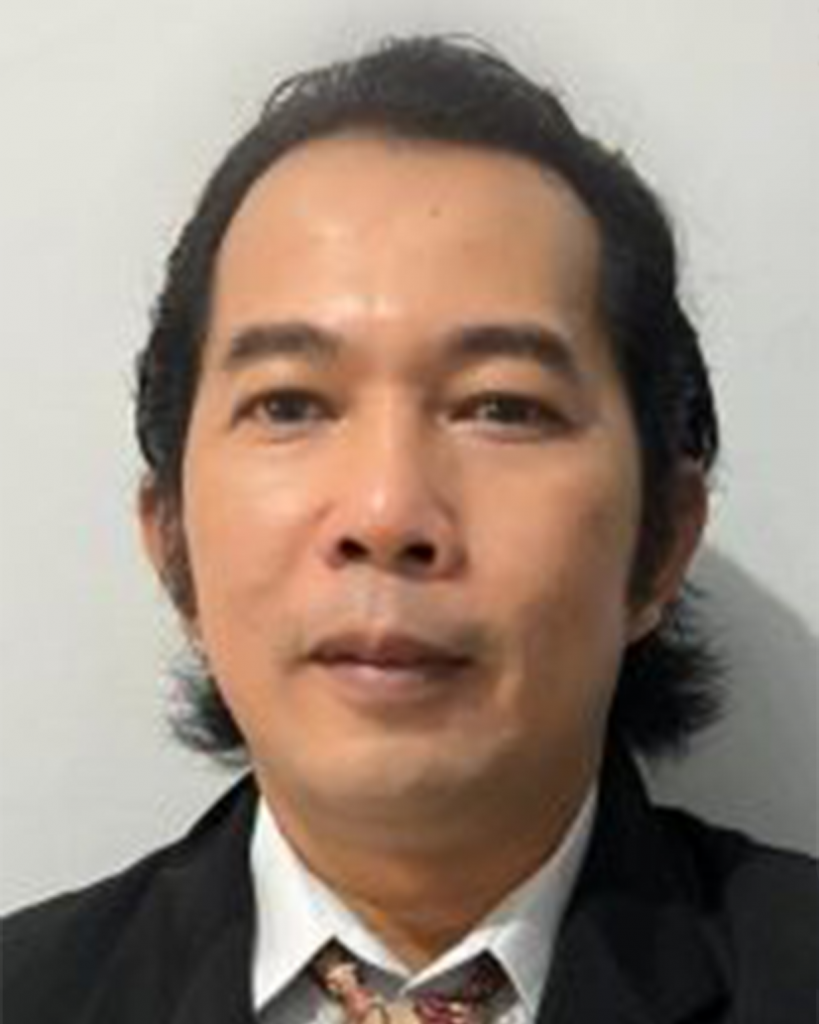
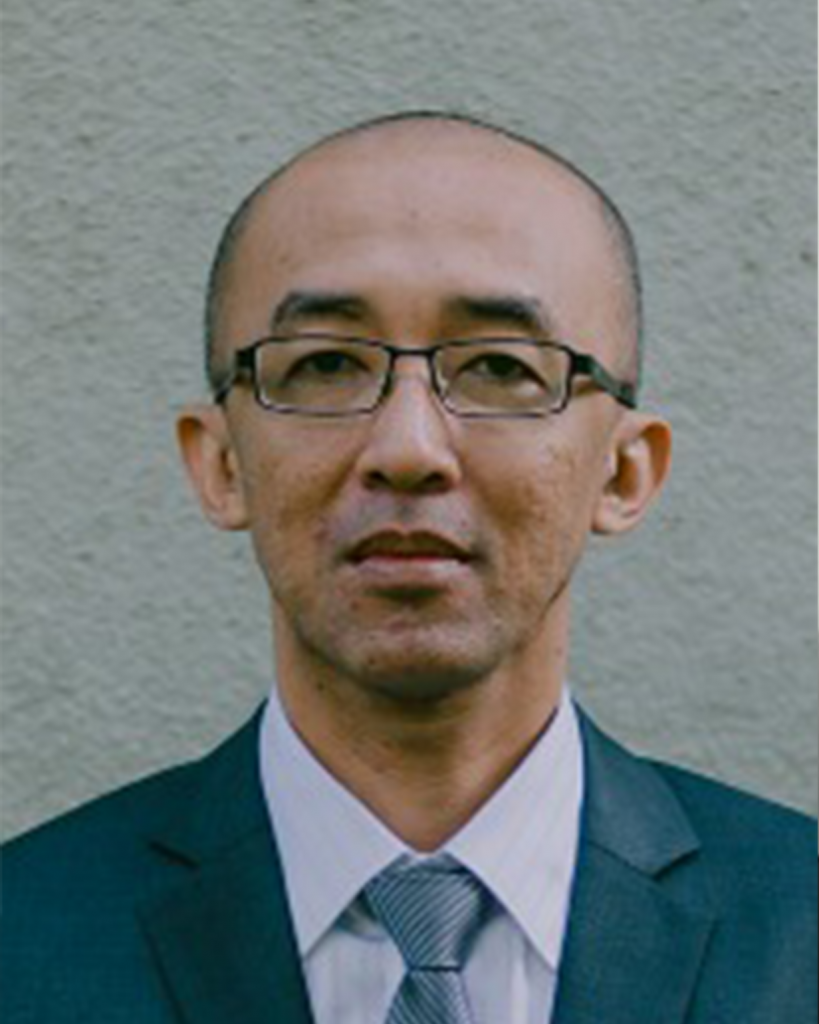
Petrology, Volcanology, and Geochemistry
The Expertise Group in Petrology, Volcanology, and Geochemistry (Kelompok Keahlian Petrologi, Volkanologi, dan Geokimia) is a multidisciplinary domain that delves into various aspects of Earth’s dynamics. The group’s extensive research portfolio encompasses the intricate realms of Volcanism, delving into the complexities of volcanic processes, magma composition, and the geological evolution of volcanic terrains. The study of Volcanology within this expertise group not only seeks to unravel the mysteries of volcanic phenomena but also contributes significantly to hazard assessment, volcanic risk mitigation, and the sustainable utilization of geothermal resources. With a focus on understanding the geological processes that lead to volcanic activities, the group plays a vital role in advancing knowledge that is critical for hazard management and sustainable development.
In addition to Volcanology, the expertise group actively engages in research related to Geothermal Energy, exploring the utilization of Earth’s heat for sustainable power generation. This includes studies on the distribution of geothermal resources, geothermal reservoir modeling, and the geochemistry of geothermal fluids. Furthermore, the group specializes in Geochemistry for Exploration of Mineral and Oil Resources, employing advanced analytical techniques to unravel the geochemical signatures associated with potential resource deposits. This encompasses both conventional and non-conventional resources, addressing the evolving landscape of mineral and oil exploration. Lastly, the group actively contributes to Mitigation of Geological Disasters, developing strategies to reduce the impact of geological hazards and enhance disaster resilience. This multifaceted expertise group thus stands at the forefront of scientific exploration, applying its knowledge to address critical geological challenges and contribute to sustainable development practices.
Scientific Development/Highlights of the Expertise Group
Volcanism, Geothermal Energy, Geochemistry for Exploration of Mineral and Oil & Gas Resources (both conventional and non-conventional), and Geological Disaster Mitigation. This expertise group focuses on the geological processes related to volcanic activities, harnessing geothermal energy, utilizing geochemical methods for exploring mineral and energy resources, and developing strategies to mitigate geological disasters. Researchers in this field contribute to advancing our understanding of volcanic phenomena, sustainable energy exploration, geochemical exploration techniques, and effective geological disaster management.
Member
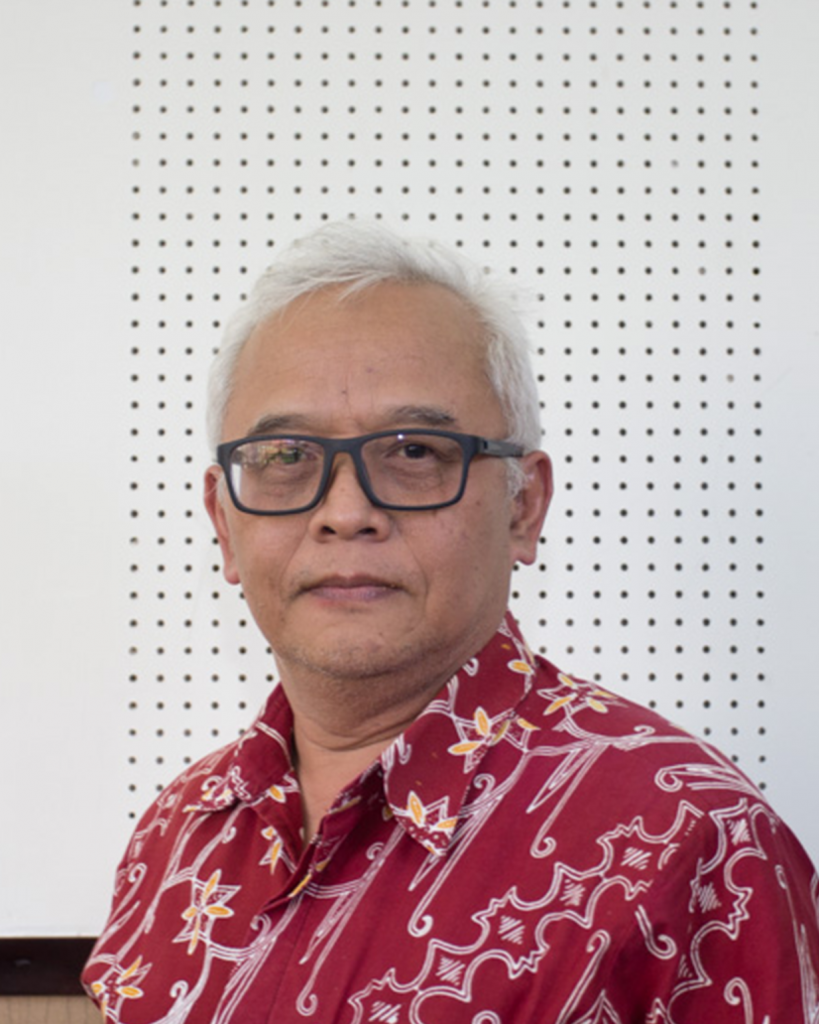
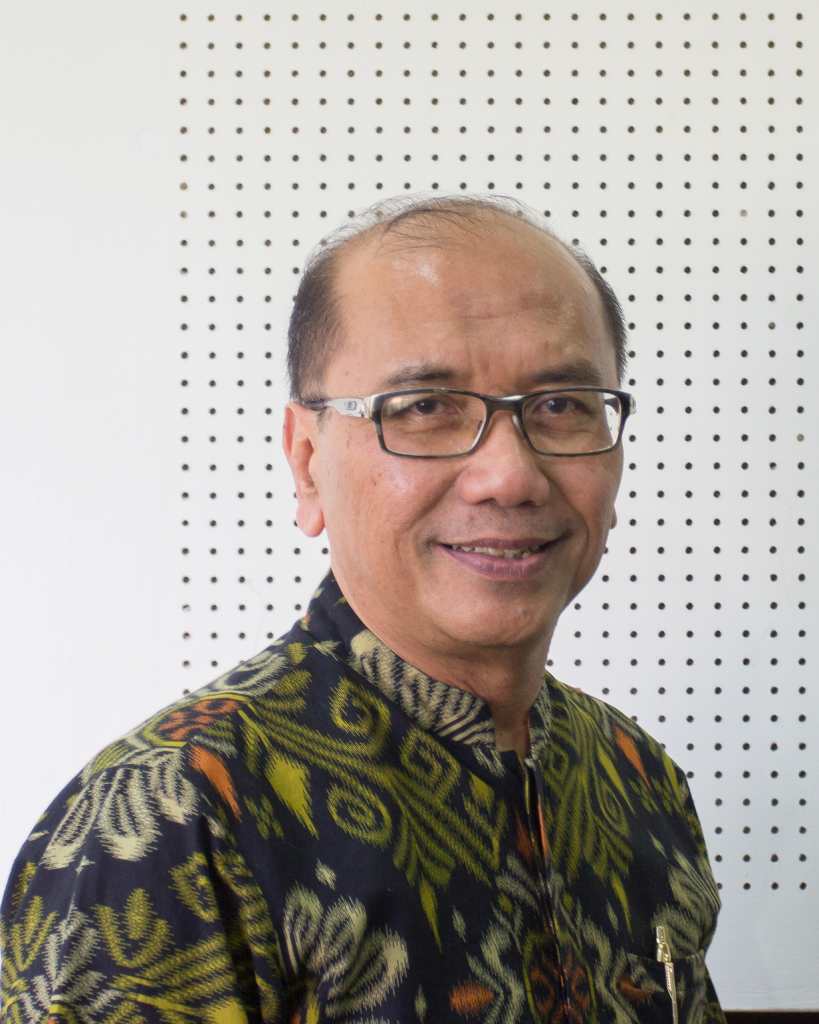
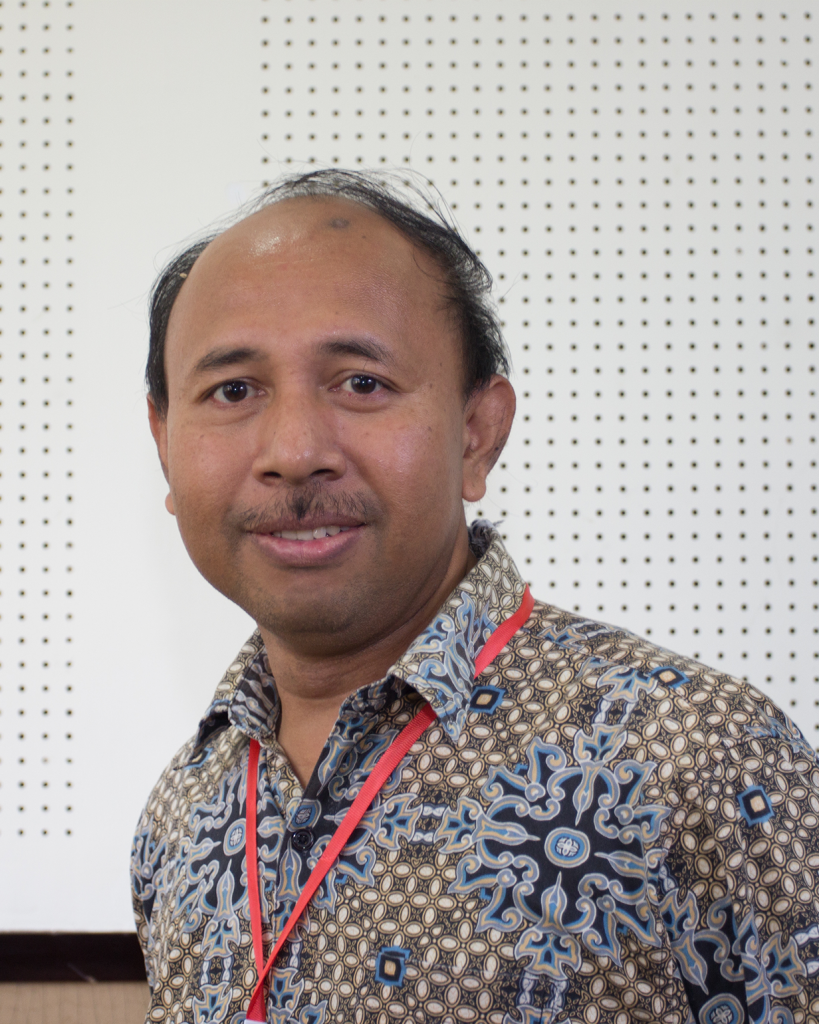
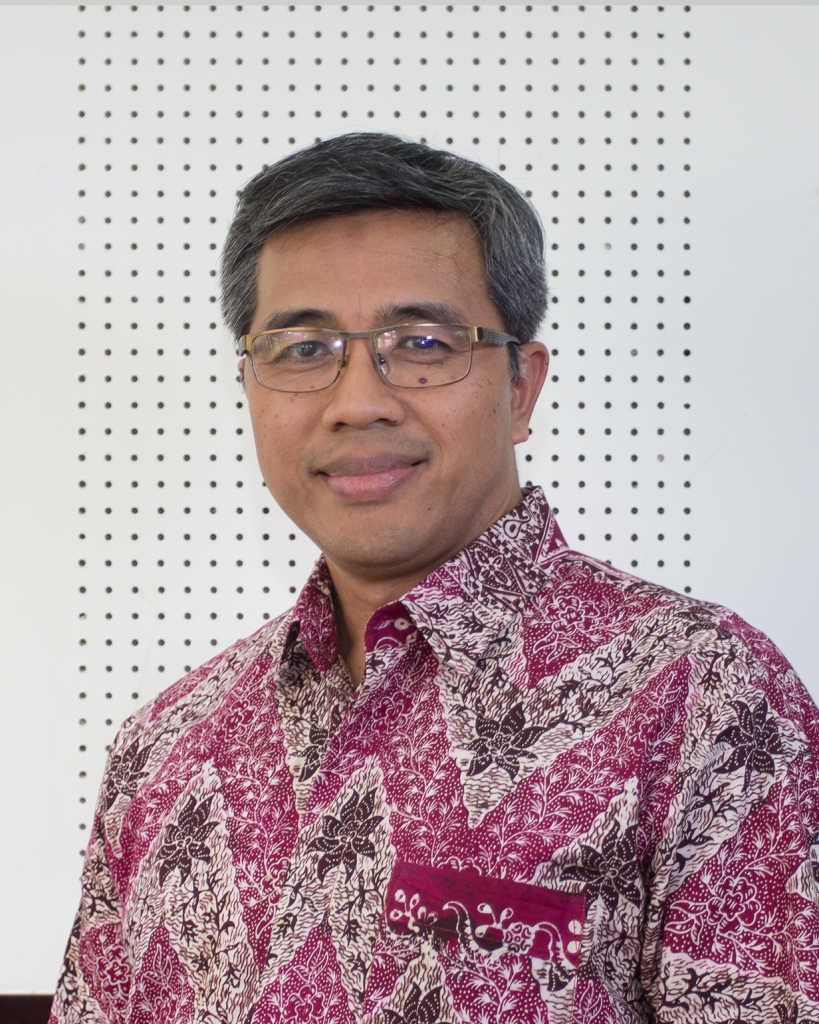
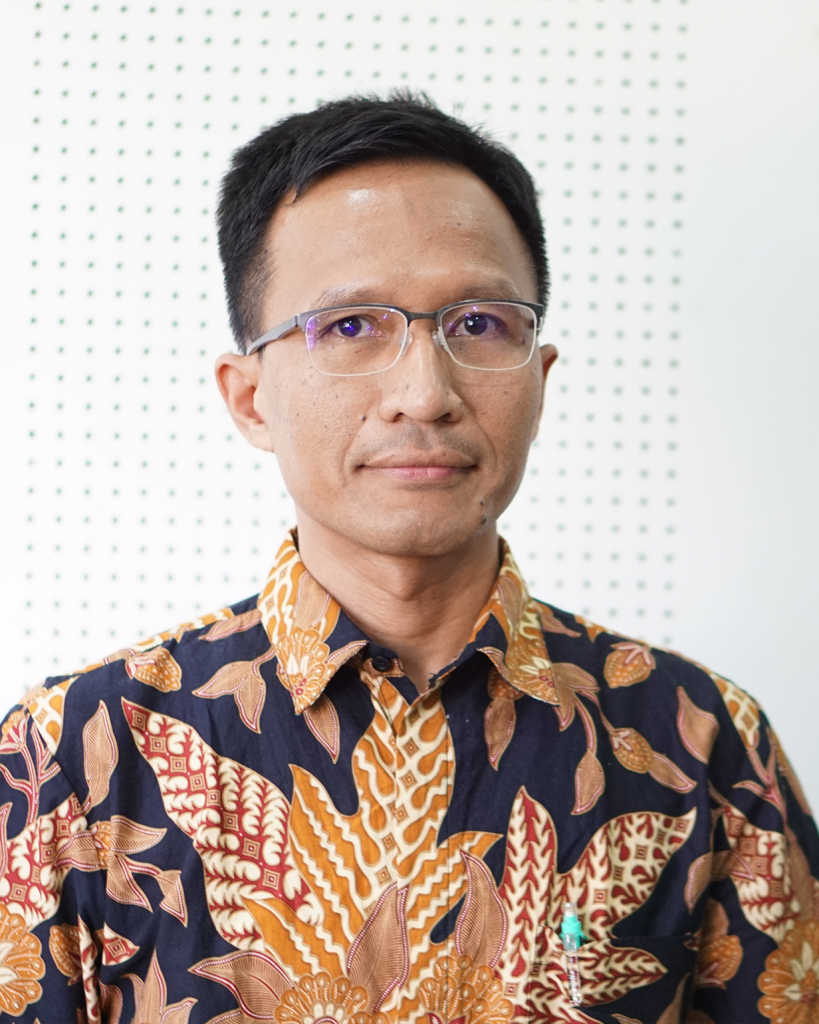
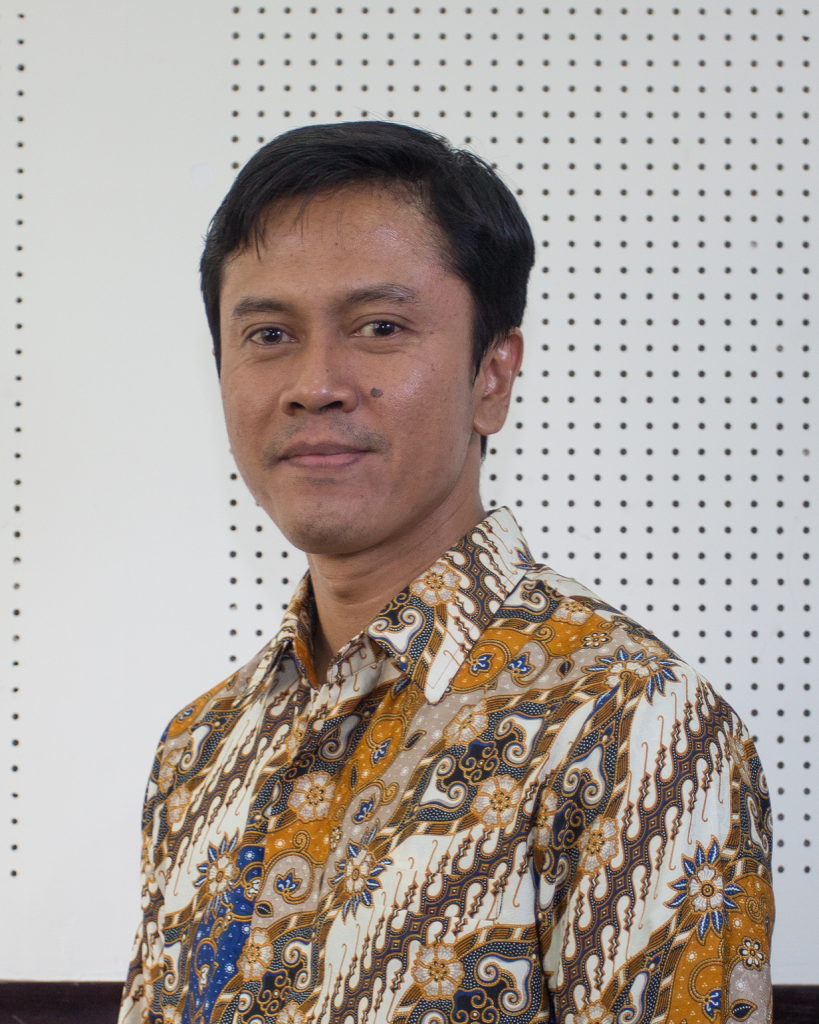

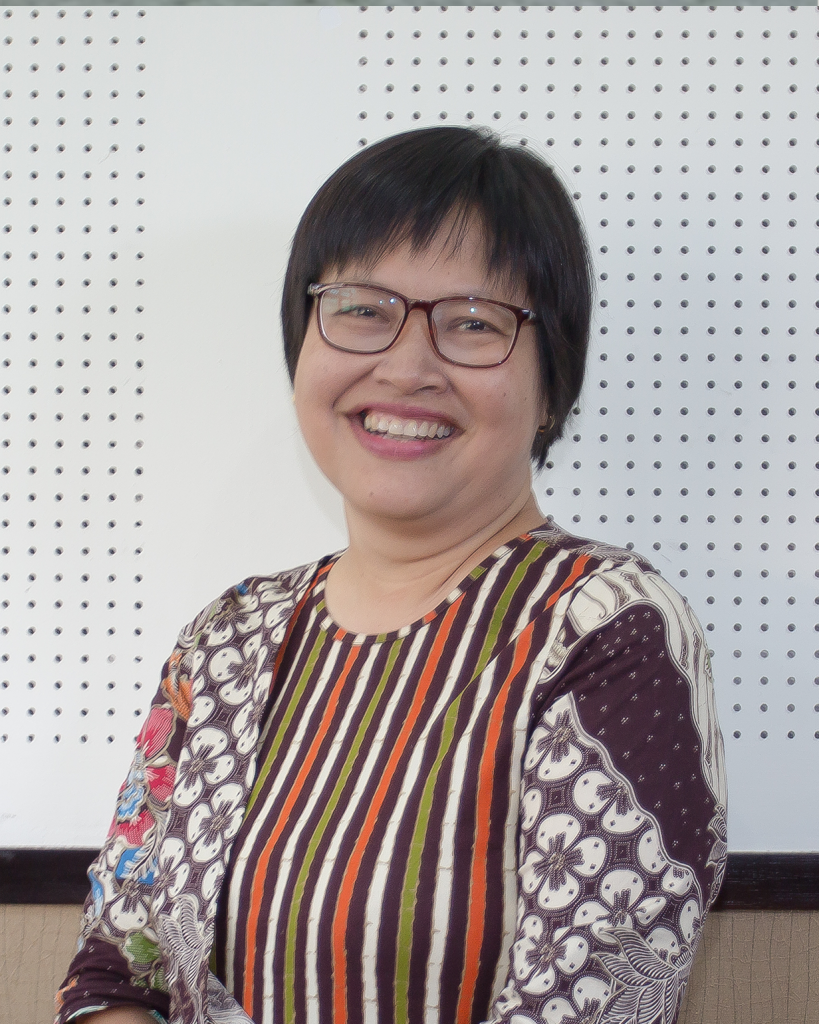
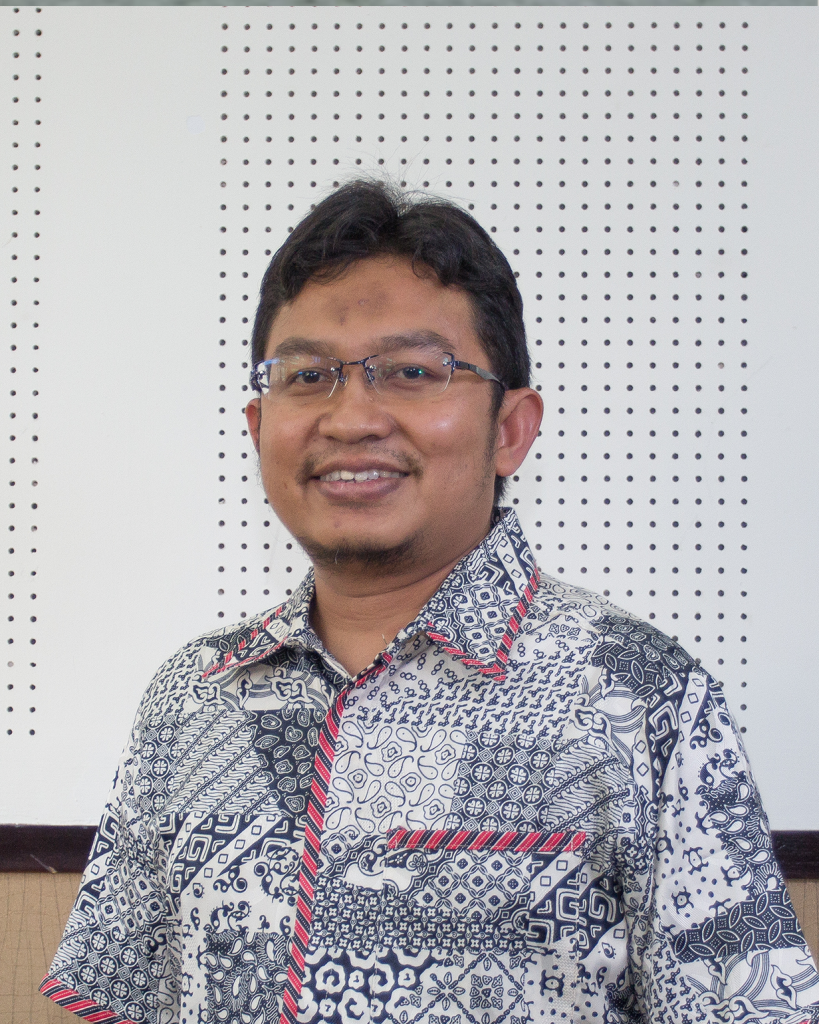
Geodynamics and Sedimentology
The Scientific Group specializing in Geodynamics and Sedimentology, encompassing Structural Geology, Tectonics, and Sedimentology, is deeply rooted in the foundational principles of geological sciences. Committed to exploring the dynamic processes that shape the Earth’s crust, the group delves into the intricate world of geodynamics, deciphering tectonic forces, and unraveling the sedimentary history that lies embedded in geological formations. This focus not only contributes to a profound understanding of the Earth’s evolution but also forms the basis for practical applications in resource exploration, geological risk assessment, and environmental management.
Within the realm of Structural Geology-Tectonics-Sedimentology, the group engages in both fundamental and applied research. By investigating the structural evolution of geological formations and unraveling the tectonic forces at play, the group provides valuable insights into the geological history of the Earth. Simultaneously, the meticulous study of sedimentology offers a comprehensive understanding of depositional processes, aiding in practical applications such as resource exploration, geological risk assessment, and environmental management. The Scientific Group in Geological Dynamics and Sedimentology thus serves as a bridge between theoretical knowledge and practical solutions, contributing to advancements in various fields.
Scientific Development/Highlights of the Expertise Group
Exploration of Oil and Gas, Geothermal Energy, Minerals (both industrial and non-industrial), Modeling with Sandbox, Neotectonic Studies, Microtectonics, and Hazard Mitigation, 3D Modeling of Rock Outcrops, Fractures, and Geomechanics, as well as Geological Remote Sensing and Geomorphology.
Member
